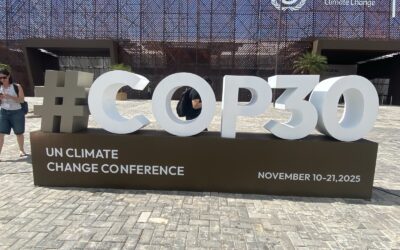[Português abaixo] The first delivery of eucalyptus trees to Aveiro in Portugal from the port of Beira in Mozambique has been received with strong criticism by Mozambican and Portuguese groups and two international coalitions. The wood is from eucalyptus plantations operated by Portucel Moçambique, a subsidiary of The Navigator Company, and will be used in pulp and paper mills in Portugal. Two more deliveries are expected this year with a total volume of 100,000m3 of wood.
Portucel Moçambique has been granted 356,000 hectares of land in the provinces of Manica and Zambézia in central Mozambique to establish eucalyptus plantations on, which is more than three times the area that The Navigator Company controls in Portugal. So far, only 13,500 hectares have been planted, but already a large number of communities have accused the company of violating their rights. [1]
Anabela Lemos, director of Justiça Ambiental in Mozambique stated: “Portucel Moçambique says that its plantations are improving the living conditions of rural communities and bringing economic development to Mozambique. In reality, this neo-colonial project is usurping the land and livelihoods of thousands of peasant families, leaving them with no options for their lives. While peasant families lose everything that is most valuable to them, Portucel exports low-value wood more than 11,000km to supply Navigator’s factories in Portugal and claims that this is contributing to their development. The promises made to communities of jobs, better lives and improved infrastructure have all been broken.”
NGOs working in Mozambique, Portugal and internationally have called on the Mozambican government to revoke Portucel Moçambique’s land concessions due to the negative impacts that the plantations are having on the livelihoods and food security of rural farming communities in the areas that have been planted. Across Portucel’s concession areas, 24,000 families could be impacted by future plantation expansion.
Paula Silva, a member of Quercus in Portugal stated: “Portugal’s eucalyptus plantation model is being exported at great cost to communities and biodiversity in Mozambique. We don’t want The Navigator Company to replicate the impact it has had here in Portugal in Mozambique or elsewhere, where decades of influence over policymakers have led to the deregulation of the forestry sector and huge impacts on the environment.”
João Camargo, a member of the climate justice collective Climáximo in Portugal, reminds us that “The Navigator Company’s practices mimic a colonialist extractive model, where African countries are treated like a mine. Everything is extracted at low cost with enormous damage to the Mozambican people, and there are rich rewards for the shareholders of multinational companies. On top of this, despite enormous publicity efforts, industrial forest plantations are not a solution to the climate crisis. They are not forests and they have only one objective: to make a profit, even if this implies the destruction of native forests, soils, waters and communities. This is the pulp and paper business model, a capitalist model based on plunder.”
NGOs have also appealed to the World Bank to withdraw its financial support for Portucel’s plantations. The International Finance Corporation, owned by the World Bank, controls about 20% of Portucel Moçambique’s shares, and the Forest Investment Program, another World Bank initiative, is helping to finance the planting of the first 40,000 hectares. This was included in Mozambique’s pledge to “restore forests” under the Bonn Challenge and the African Forest Landscape Restoration Initiative (AFR100), which were launched alongside the signing of the UN’s Paris Agreement in 2011.
Kwami Kpondzo, Africa regional coordinator for the Global Forest Coalition stated: “The World Bank is giving Portucel millions to plant eucalyptus in Mozambique under the false pretext that afforestation with plantations can help solve climate change. The opposite is true. Converting forests and agricultural land to plantations releases large amounts of carbon. In addition, the wood is shipped thousands of kilometers just to be turned into short-lived paper products such as office paper, toilet paper and supermarket packaging, or burned to generate electricity in Navigator’s pulp mills.”
Sergio Baffoni, campaigner with the Environmental Paper Network, said: “The wood-fibre plantations planned by Portucel Moçambique have turned into a boomerang for local communities and the environment. The plantations have spread over people’s land and over some of the last remaining miombo woodlands, causing pollution, soil erosion, loss of biodiversity, increased risks of water shortage and forest fires in an area already prone to drought.”
Notes:
[1] See: https://wrm.org.uy/wp-content/uploads/2017/04/Portucel_O_Processo_de_acesso_%C3%A0_Terra_e_os_direitos_das_comunidades_locais.pdf, https://environmentalpaper.org/wp-content/uploads/2017/11/171117-Discussion-Document-Portucel-Report-2017-English.pdf and https://globalforestcoalition.org/forest-cover-63/#mozambique
Contacts and signatories:
Justiça Ambiental: Vanessa Cabanelas <vcabanelas.ja.mz@gmail.com>
Quercus – ANCN: Domingos Patacho <florestas@quercus.pt>
Climáximo: João Camargo <climaximo@riseup.net>
Global Forest Coalition: Oliver Munnion <oli@globalforestcoalition.org>
Environmental Paper Network: Luisa Colasimone <luisa@environmentalpaper.org>
Grupos portugueses e moçambicanos denunciam The Navigator Company quando chega a Portugal o primeiro carregamento de eucalipto moçambicano
O primeiro carregamento de toros de eucalipto que chegou a Aveiro proveniente do porto da Beira, em Moçambique, foi recebido com fortes críticas por grupos moçambicanos e portugueses, apoiados por coligações internacionais. A madeira provém de plantações de eucalipto exploradas pela Portucel Moçambique, subsidiária da empresa Navigator, e será utilizada nas fábricas de pasta e papel em Portugal. Outros dois carregamentos são esperados este ano, com total de 100.000m3 de madeira.
À Portucel Moçambique foram atribuídos 356 mil hectares de terra nas províncias de Manica e Zambézia, no centro de Moçambique, para estabelecer plantações de eucalipto, o que é mais de três vezes a área que a Navigator Company controla em Portugal. Até agora, apenas 13.500 hectares foram plantados, mas já um grande número de comunidades acusou a empresa de violar seus direitos. [1]
Anabela Lemos, directora de Justiça Ambiental em Moçambique declarou: “A Portucel Moçambique afirma que as suas plantações estão a melhorar as condições de vida das comunidades rurais e a trazer desenvolvimento económico para Moçambique. Na realidade, este projeto neocolonialista está a usurpar terra e meios de subsistência a milhares de famílias camponesas, deixando as mesmas sem opções de vida. Enquanto as famílias camponesas perdem tudo que de mais valor tem a Portucel exporta madeira de baixo valor por mais de 11.000 km para abastecer as fábricas da Navigator em Portugal e ainda afirma que está a contribuir para o desenvolvimento das mesmas. As promessas feitas às comunidades de empregos, vidas melhores e infraestrutura aprimorada foram todas quebradas.”
ONGs a trabalhar em Moçambique, Portugal e internacionalmente apelaram ao governo moçambicano para revogar as concessões de terras da Portucel Moçambique devido aos impactos negativos que as plantações estão a ter na subsistência e segurança alimentar das comunidades agrícolas rurais nas áreas que foram plantados. Em todas as áreas de concessão, 24.000 famílias podem ser impactadas pela futura expansão da plantação.
Paula Silva, de Quercus em Portugal declarou: “O modelo de plantação de eucalipto em Portugal está a ser exportado com grande custo para as comunidades e a biodiversidade em Moçambique. Não queremos que a Navigator Company reproduza o impacto que teve em Portugal, em Moçambique ou em qualquer outro lugar, onde décadas de influência sobre os políticos conduziram à desregulamentação do sector florestal e enormes impactos no ambiente.”
João Camargo, do colectivo pela justiça climática Climáximo, recorda que “as práticas da The Navigator Company mimetizam o modelo extractivista baseado na manutenção das lógicas do colonialismo, em que os países africanos são tratados como uma mina, onde tudo se extrai a baixo custo com enorme prejuízo para o povo moçambicano e ricas recompensas para os accionistas das multinacionais. Além disso, apesar do enorme esforço de publicidade, as plantações florestais industriais não são uma solução para a crise climática, não são florestas e têm um só objectivo: produzir lucro, mesmo que isso implique a destruição de florestas nativas, solos, águas e comunidades. Esse é o modelo de negócio das celuloses, o modelo capitalista de saque.”
As ONGs apelaram também ao Banco Mundial para retirar o seu apoio financeiro às plantações da Portucel. A International Finance Corporation, propriedade do Banco Mundial, controla cerca de 20% das ações da Portucel Moçambique, e o Forest Investment Program, outra iniciativa do Banco Mundial, está a ajudar a financiar a plantação dos primeiros 40.000 hectares. Isso foi incluído na promessa de Moçambique de “restaurar as florestas” sob o “Bonn Challenge” e a Iniciativa de Restauração da Paisagem Florestal Africana (AFR100), que foram lançados juntamente com a assinatura do Acordo de Paris da ONU em 2011.
Kwami Kpondzo, coordenador regional da África para o Global Forest Coalition declarou: “O Banco Mundial está a dar à Portucel milhões para plantar eucalipto em Moçambique sob o falso pretexto de que a florestação com plantações pode ajudar a resolver as alterações climáticas. O oposto é verdade. A conversão de florestas e terras agrícolas em plantações liberta grandes quantidades de carbono. Além disso, a madeira é enviada a milhares de quilómetros apenas para ser transformada em produtos de papel de vida curta, como papel de escritório, higiênico e embalagens de supermercado, ou queimada para gerar eletricidade nas fábricas de celulose do Navigator.”
Sergio Baffoni, activista da Environmental Paper Network, disse: “As plantações de celulose planeadas pela Portucel Moçambique transformaram-se num bumerangue para as comunidades locais e para o ambiente. As plantações espalharam-se pelas terras das pessoas e por algumas das últimas florestas de miombo remanescentes, causando poluição, erosão do solo, perda de biodiversidade, aumento dos riscos de falta de água e incêndios florestais numa área já sujeita à seca.”
Notas:
[1] Veja: https://wrm.org.uy/wp-content/uploads/2017/04/Portucel_O_Processo_de_acesso_%C3%A0_Terra_e_os_direitos_das_comunidades_locais.pdf, https://environmentalpaper.org/wp-content/uploads/2017/11/171117-Discussion-Document-Portucel-Report-2017-Portuguese.pdf e https://globalforestcoalition.org/fc63-pt/#mozambique
Contatos e organizações signatárias:
Justiça Ambiental: Vanessa Cabanelas <vcabanelas.ja.mz@gmail.com>
Quercus – ANCN: Domingos Patacho <florestas@quercus.pt>
Climáximo: João Camargo <climaximo@riseup.net>
Global Forest Coalition: Oliver Munnion <oli@globalforestcoalition.org>
Environmental Paper Network: Luisa Colasimone <luisa@environmentalpaper.org>




